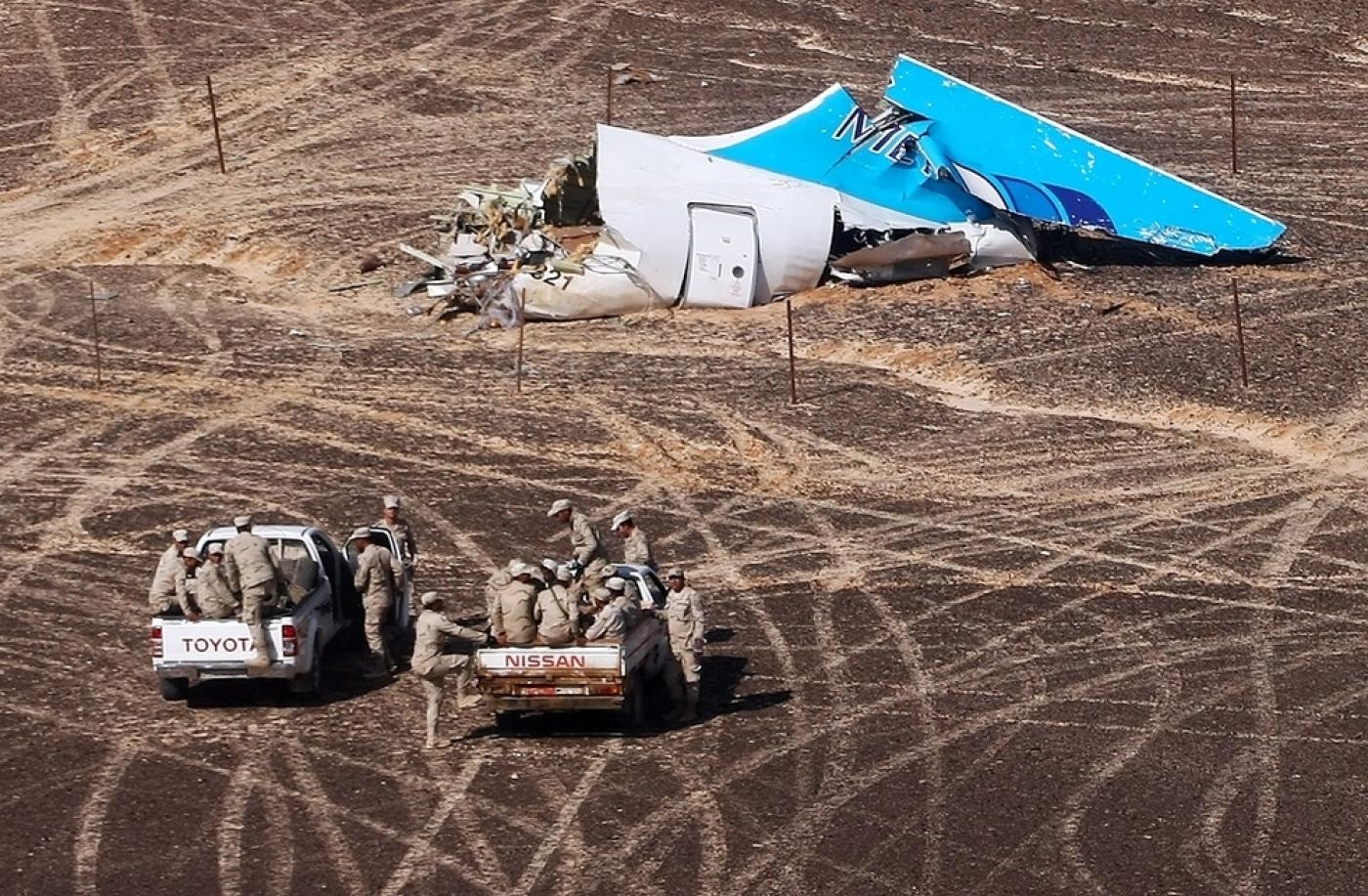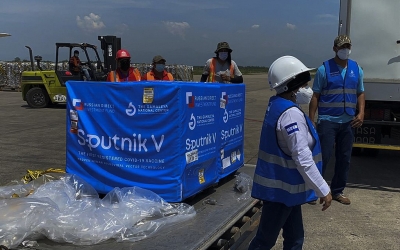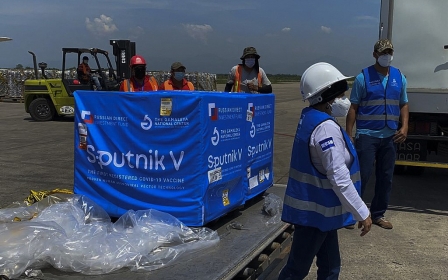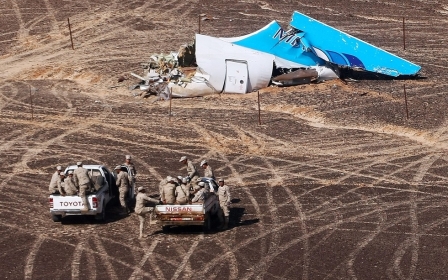Egypt and Russia agree to resume all flights, with tourist airports considered safe again

Egypt and Russia agreed to resume all flights between the two countries in a call between Presidents Abdel Fattah el-Sisi and Vladimir Putin, Egypt's presidency said in a statement on Friday.
Flights to popular resort destinations Sharm el-Sheikh and Hurghada were suspended after a Russian passenger plane crashed in Sinai in October 2015, killing 224 people. The Airbus A321, operated by Metrojet, had been taking Russian holidaymakers home from Sharm el-Sheikh to St Petersburg.

New MEE newsletter: Jerusalem Dispatch
Sign up to get the latest insights and analysis on Israel-Palestine, alongside Turkey Unpacked and other MEE newsletters
Shortly after the crash, affiliates of Islamic State in Sinai claimed responsibility, with Russian investigators concluding the cause was most likely an onboard explosive device.
On 24 February 2016, Sisi contradicted previous government statements when he declared that the plane had been downed by “terrorism”, in a bid to disrupt Egypt's relations with Russia.
The decision to resume flights followed "the joint cooperation between the two sides on this issue, and based on the standards of security and convenience provided for visits at Egyptian tourist destination airports," Friday's statement said.
The announcement did not specify a timeline for the resumption of flights, but Russia's Interfax news agency reported earlier this week that flights could restart in the second half of May. Egypt had been a major destination for Russian tourists, with tens of thousands visiting every year.
The move comes as Egypt faces a new spike in Covid-19 cases during Ramadan.
Egypt to produce Sputnik vaccine
Egypt's statement comes a day after it was announced that the Egyptian firm Minapharm would become the first company in the Middle East and North Africa to produce Russia's Sputnik V Covid-19 vaccine.
According to a joint statement by the company and the Russian Direct Investment Fund (RDIF), Minapharm said it would be producing 40m doses of the vaccine. These will become the first Sputnik V vaccines due for "global distribution", later this year.
Egypt has vaccinated only 0.1 percent of its population to date, according to the health ministry, while cases are surging, following a warning by authorities last month that a third wave of the virus was imminent.
Middle East Eye delivers independent and unrivalled coverage and analysis of the Middle East, North Africa and beyond. To learn more about republishing this content and the associated fees, please fill out this form. More about MEE can be found here.



